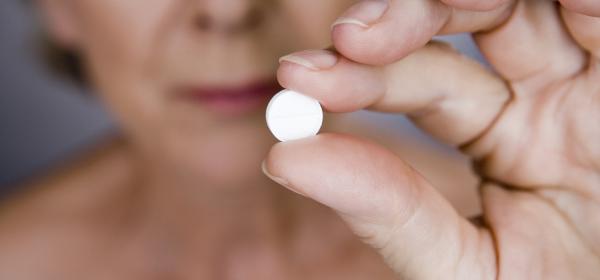A virtuous cycle of innovation and access has served as the foundation for our nation’s prescription drug market since the presidency of Ronald Reagan. When that market worked as Congress originally intended around the time of enactment of the Hatch-Waxman amendments in the 1980s, patients benefited from lifesaving new drugs; they maintained their health with generic medicines; brand drug makers recouped their investments, rewarded shareholders and were incentivized to discover new therapies and cures; and the makers of generics had thriving businesses. Over the decades, however, this market became distorted. Business practices and policies favoring brand name medicines priced many new drugs out-of-reach to patients and put generic manufacturers at risk.
President Trump now has a unique opportunity to make America’s prescription drug market great again. Ironing out the wrinkles produced over time can bring back lower brand prices for patients while ensuring the viability of America’s critically important generic drug industry.
It is undisputed that robust market competition from generic versions of expensive brand-name drugs can produce significantly lower drug prices. The Food and Drug Administration (FDA) tells us that generic medicines are priced approximately 85 percent less than name brand equivalent drugs. According to pharmaceutical sales tracker IQVIA, ninety percent of generic prescriptions are filled with a copay for less than $20 and average $5.47 out-of-pocket for patients. When the market does work effectively, patients can afford both their medicines and life’s other essentials.
To its credit, the FDA, led by Dr. Scott Gottlieb, has committed the agency to speeding the approval process for these money-saving generic drugs. Unfortunately, even when approved, generic and biosimilar medicines – which are more affordable versions of expensive biologic drugs – face high hurdles getting to market and staying in the market. These hurdles are jeopardizing the generic and biosimilar industry in the United States, which produces more than 62 billion doses domestically.
With increasing intensity and creativity, branded pharmaceutical companies prevent FDA-approved generic medicines from getting into the hands of patients. These brand drug manufacturers employ business tactics to extend their monopolies artificially and well beyond what Congress intended when it passed Hatch-Waxman. The tactics boost profits for brand-name manufacturers, but make it harder for patients to access and afford their medicines.
Take the example of Humira, an arthritis therapy that is also the world’s best-selling drug. In 2016, the principal initial patent on Humira expired. But just before that patent expired the drug’s manufacturer, AbbVie, filed more than 75 additional late-stage patents in an effort to delay competition. As a result, the last Humira patent won’t expire until 2034, preventing generic competition for nearly two decades after the initial patents expired.
Humira, a biologic, is considered part of a class called “specialty drugs.” IQVIA reports this category of brand drugs account for approximately 2 percent of prescriptions in the United States, but represent an incredibly disproportionate 46.5% of spending. By erecting its formidable patent wall around Humira, AbbVie manipulates the intellectual property system to protect annual revenues of more than $18 billion on its blockbuster drug, while continuing to raise the price of Humira around 10% every year.
The U.S. lags woefully behind many European countries in getting biosimilars, which are alternatives to costly biologics like Humira, to the market for consumers. Dr. Gottlieb has been effective drawing attention to the shenanigans and anti-competitive schemes that postpone or deny generic and biosimilar entry, like brand companies withholding samples of their medicines from generic drug makers who need the samples to conduct the testing necessary to obtain FDA approval.
The good news for patients is that market enhancements to correct for these challenges are well within our grasp. For instance, President Trump can instruct Congress to pass the bipartisan CREATES and PACED Acts, which remedy some of the abuses creating the current imbalance. The CREATES Act gives generic companies the recourse necessary to get brand companies to sell them the samples required by the FDA for approval. The PACED Act would correct an especially egregious manipulation of the patent system where branded pharmaceutical companies try to shield bad patents from challenges by “renting” the sovereign immunity of Native American tribes.
An average dose of the top 100 most widely prescribed generic medicines in Medicare Part D sells for just 10 cents. This truly is an American success story. The cost of generic medicines is generally less expensive in the United States than other countries. We are committed to working with President Trump to fix the foundation of this great market in order to lower and keep down drug prices for the patients we serve.

By Chip Davis, President and CEO, AAM

